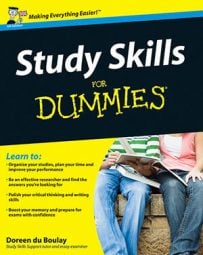| Instruction word | What you have to do |
|---|---|
| Analyse | Take apart an idea, concept or statement and examine and criticise its sub-parts in detail. You have to be methodical and logical. |
| Assess | Describe a topic’s positive and negative aspects and say how useful or successful it is, or consider its contribution to knowledge, events or processes (this is usually about how important something is). |
| Criticise | Point out a topic’s mistakes or weaknesses as well as its favourable aspects. Give a balanced answer (this will involve some analysis first). |
| Compare | Put items side by side to see their similarities and differences – a balanced (objective) answer is required. |
| Contrast | Emphasise the differences between two things. |
| Define | Give the meaning of an idea, either a dictionary definition or from an academic authority in your subject of study (technical definition). |
| Describe | Give details of processes, properties, events and so on. |
| Discuss | Describe, explain, give examples, points for and against, then analyse and evaluate the results. |
| Evaluate | Similar to discuss, but with more emphasis on a judgement in the conclusion. |
| Examine | Take apart and describe a concept in great detail. |
| Explain | Give detailed reasons for an idea, principle or result, situation, attitude and so on. You may need to give some analysis as well. |
| Illustrate | Give concrete examples – including figures or diagrams. Illustrate is usually added on to another instruction. |
| Interpret | Explain and comment on the subject and make a judgement (evaluation). |
| Justify | Give reasons to support a statement – it may be a negative statement, so be careful! |
| List | Provide an itemised series of parts, reasons or qualities, possibly in a table. |
| Prove/disprove | Provide evidence for or against and demonstrate logical argument and reasoning – you often have to do this for abstract or scientific subjects. |
| Relate | Emphasise the links, connections and associations, probably with some analysis. |
| Review | Analyse and comment briefly, in organised sequences – sentences, paragraphs or lists – on the main aspects of a subject. |
| State | Give the relevant points briefly – you don’t need to make a lengthy discussion or give minor details. |
| Suggest | Give possible reasons – analyse, interpret and evaluate. (This is also the verb most commonly used to quote another author.) |
| Summarise or outline | Just give the main points, not the details. |
| Trace | Give a brief description of the logical or chronological stages of the development of a theory, process, a person’s life and so on. Often used in historical questions. |

